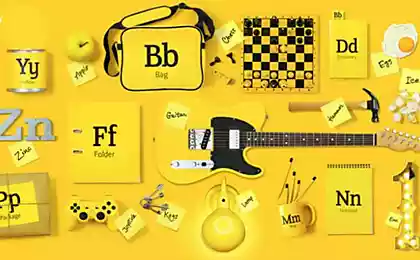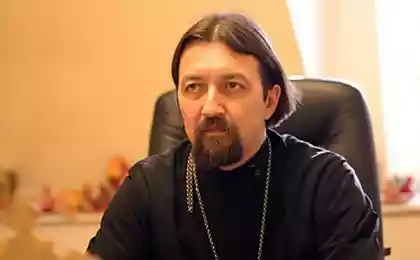177
How to learn to speak competently
The Russian language is so rich and multifaceted that its complexity can terrify any foreigner. But for a Russian-speaking person who absorbed the first rules of native grammar with his mother’s milk, it is not easy to do without mistakes.
This is because the conversational style is firmly embedded in business speech, and even well-educated people make mistakes. What to say about those who do not follow the literacy of their speech.
But shouldn’t everyone make an effort to speak and write correctly, especially in their own language? So today's editorial office. "Site" will tell How to learn to write competently And at least the phrases we use every day.

DepositPhotos How to Learn to Speak Literally
The Russian language is incredibly complex and multifaceted. Some errors have become so popular that they are considered variants of the norm. And often there are discussions among philologists on even the smallest issue.
Of course, no one will compare every word spoken and written with textbooks, but write Everyday phrases we must. After all, in the era of information technology, it is shameful to be an uneducated person who not only makes mechanical mistakes, but also does not understand where and why he made a mistake. He infects others with his ignorance.
In the past, we’ve seen some common mistakes in writing different words and designs. And also cited the most common pleonasms, which give everyone who does not fully understand the meaning of the words spoken. Take a few minutes and you won’t make any more mistakes. You can teach others, too.
What are they? problem-words Do they come to your mind? Share it in the comments.
This is because the conversational style is firmly embedded in business speech, and even well-educated people make mistakes. What to say about those who do not follow the literacy of their speech.
But shouldn’t everyone make an effort to speak and write correctly, especially in their own language? So today's editorial office. "Site" will tell How to learn to write competently And at least the phrases we use every day.

DepositPhotos How to Learn to Speak Literally
- “In Ukraine” or “In Ukraine”
When referring to a country, the preposition “c” is usually used. However, in the case of Ukraine, we are talking about an exception to the rules, so the norm in Russian should be considered the option “in Ukraine”.
- “From Ukraine” or “from Ukraine”
Based on the first point, if the correct option is “in Ukraine”, then the only correct one is to write and say “from Ukraine”. Traditionally, this is the case, but according to the rules, the option should be different. - "In Kemerovo" or "in Kemerovo"
In Russian, nouns-toponyms with endings in -ovo /-evo, -ino /-io are inclined. To find out the correct ending, simply connect with the word “city”. It will turn out “in the city of Kemerovo”, which means that the letter “e” also ends.
DepositPhotos - "Who's last in line" or "who's last in line"
There is an opinion that the word “extreme” in the sense of “last” began to use those whose activities are associated with risk – employees of the Ministry of Emergency Situations, extreme tourism, aviation. For fear of causing trouble, they did not call departure, departure or other action the last. Later it spread to other superstitious people as well as those who communicated with them. "Extreme" means only the location - the one with the edge. Although the expression “found the extreme” in colloquial speech also has a right to exist. However, it is correct to write or say “who is last in line”.
DepositPhotos - “Borrow money” or “borrow money”
You need to be able to ask for money in debt correctly, especially if your lender is a philologist with experience. Many people don’t see the difference between “borrowing” and “borrowing.” But it is: “to borrow” means “to take”, and “to borrow” means “to give”. Therefore, saying “borrow money” or “borrow me” is wrong. The right thing to do is “lend me money” or “lend me money.”
DepositPhotos - “How much time” or “how much time”
This is a very simple mistake, but what a frequent one! In the first option, the wrong case is simply chosen, because it is correct to say “how much time”. Many young men do not know this and, getting acquainted with the old-fashioned way, immediately betray their illiteracy. By the way, the earlier popular phrase was “What time is it?”. - "Good day" or "Good day"
Some will say that both phrases are correct, but they are not. The fact is that the genitive case in Russian is used only when saying goodbye: “good day” or “happy way”. But greeting a person, we are obliged to use the greeting only in the nominative case "good morning", "good evening" or "good day". If you communicate with the recipient, not knowing what time zone he is in, you can use the universal greeting: "Hello", "Hello" or "Good day".
DepositPhotos
The Russian language is incredibly complex and multifaceted. Some errors have become so popular that they are considered variants of the norm. And often there are discussions among philologists on even the smallest issue.
Of course, no one will compare every word spoken and written with textbooks, but write Everyday phrases we must. After all, in the era of information technology, it is shameful to be an uneducated person who not only makes mechanical mistakes, but also does not understand where and why he made a mistake. He infects others with his ignorance.
In the past, we’ve seen some common mistakes in writing different words and designs. And also cited the most common pleonasms, which give everyone who does not fully understand the meaning of the words spoken. Take a few minutes and you won’t make any more mistakes. You can teach others, too.
What are they? problem-words Do they come to your mind? Share it in the comments.




























